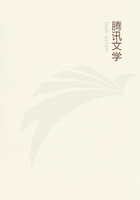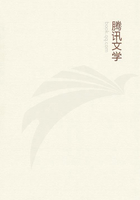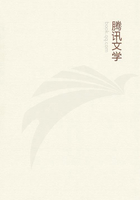Soc.My meaning is certainly not obvious, and I will endeavour to be plainer.I do not mean by beauty of form such beauty as that of animals or pictures, which the many would suppose to be my meaning;but, says the argument, understand me to mean straight lines and circles, and the plane solid figures which are formed out of them by turning-lathes and rulers and measurers of angles; for these Iaffirm to be not only relatively beautiful, like other things, but they are eternally and absolutely beautiful, and they have peculiar pleasures, quite unlike the pleasures of scratching.And there are colours which are of the same character, and have similar pleasures;now do you understand my meaning?
Pro.I am trying to understand, Socrates, and I hope that you will try to make your meaning dearer.
Soc.When sounds are smooth and clear, and have a single pure tone, then I mean to say that they are not relatively but absolutely beautiful, and have natural pleasures associated with them.
Pro.Yes, there are such pleasures.
Soc.The pleasures of smell are of a less ethereal sort, but they have no necessary admixture of pain; and all pleasures, however and wherever experienced, which are unattended by pains, I assign to an analogous class.Here then are two kinds of pleasures.
Pro.I understand.
Soc.To these may be added the pleasures of knowledge, if no hunger of knowledge and no pain caused by such hunger precede them.
Pro.And this is the case.
Soc.Well, but if a man who is full of knowledge loses his knowledge, are there not pains of forgetting?
Pro.Not necessarily, but there may be times of reflection, when he feels grief at the loss of his knowledge.
Soc.Yes, my friend, but at present we are enumerating only the natural perceptions, and have nothing to do with reflection.
Pro.In that case you are right in saying that the loss of knowledge is not attended with pain.
Soc.These pleasures of knowledge, then, are unmixed with pain;and they are not the pleasures of the many but of a very few.
Pro.Quite true.
Soc.And now, having fairly separated the pure pleasures and those which may be rightly termed impure, let us further add to our description of them, that the pleasures which are in excess have no measure, but that those which are not in excess have measure; the great, the excessive, whether more or less frequent, we shall be right in referring to the class of the infinite, and of the more and less, which pours through body and soul alike; and the others we shall refer to the class which has measure.
Pro.Quite right, Socrates.
Soc.Still there is something more to be considered about pleasures.
Pro.What is it?
Soc.When you speak of purity and clearness, or of excess, abundance, greatness and sufficiency, in what relation do these terms stand to truth?
Pro.Why do you ask, Socrates?
Soc.Because, Protarchus, I should wish to test pleasure and knowledge in every possible way, in order that if there be a pure and impure element in either of them, I may present the pure element for judgment, and then they will be more easily judged of by you and by me and by all of us.
Pro.Most true.
Soc.Let us investigate all the pure kinds; first selecting for consideration a single instance.
Pro.What instance shall we select?
Soc.Suppose that we first of all take whiteness.
Pro.Very good.
Soc.How can there be purity in whiteness, and what purity? Is that purest which is greatest or most in quantity, or that which is most unadulterated and freest from any admixture of other colours?
Pro.Clearly that which is most unadulterated.
Soc.True, Protarchus; and so the purest white, and not the greatest or largest in quantity, is to be deemed truest and most beautiful?
Pro.Right.
Soc.And we shall be quite right in saying that a little pure white is whiter and fairer and truer than a great deal that is mixed.
Pro.Perfectly right.
Soc.There is no need of adducing many similar examples in illustration of the argument about pleasures; one such is sufficient to prove to us that a small pleasure or a small amount of pleasure, if pure or unalloyed with pain.is always pleasanter and truer and fairer than a great pleasure or a great amount of pleasure of another kind.
Pro.Assuredly; and the instance you have given is quite sufficient.
Soc.But what do you say of another question:-have we not heard that pleasure is always a generation, and has no true being? Do not certain ingenious philosophers teach this doctrine, and ought not we to be grateful to them?
Pro.What do they mean?
Soc.I will explain to you, my dear Protarchus, what they mean, by putting a question.
Pro.Ask, and I will answer.
Soc.I assume that there are two natures, one self-existent, and the other ever in want of something.
Pro.What manner of natures are they?
Soc.The one majestic ever, the other inferior.
Pro.You speak riddles.
Soc.You have seen loves good and fair, and also brave lovers of them.
Pro.I should think so.
Soc.Search the universe for two terms which are like these two and are present everywhere.
Pro.Yet a third time I must say, Be a little plainer, Socrates.
Soc.There is no difficulty, Protarchus; the argument is only in play, and insinuates that some things are for the sake of something else (relatives), and that other things are the ends to which the former class subserve (absolutes).
Pro.Your many repetitions make me slow to understand.
Soc.As the argument proceeds, my boy, I dare say that the meaning will become clearer.
Pro.Very likely.
Soc.Here are two new principles.
Pro.What are they?
Soc.One is the generation of all things, and the other is essence.
Pro.I readily accept from you both generation and essence.
Soc.Very right; and would you say that generation is for the sake of essence, or essence for the sake of generation?
Pro.You want to know whether that which is called essence is, properly speaking, for the sake of generation?
Soc.Yes.
Pro.By the gods, I wish that you would repeat your question.














